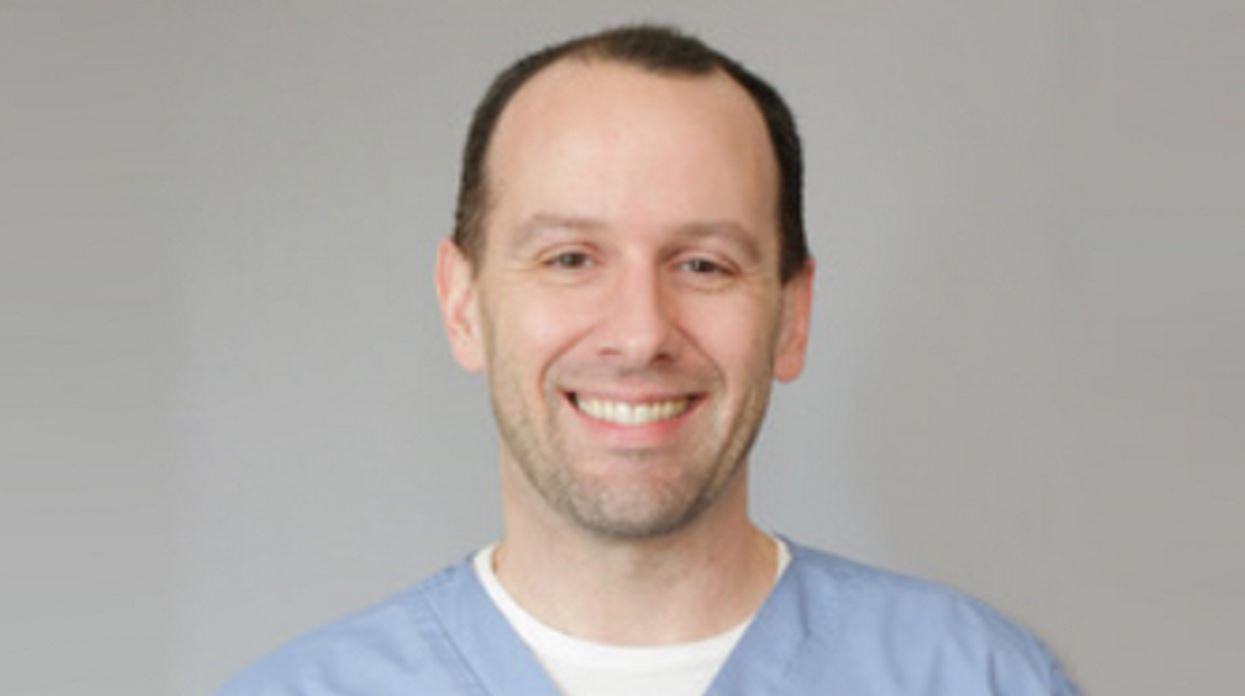
MCPHS is a Game Changer for Career Changers

After working as a special education teacher for six years, Mike Plum decided it was time to dive in and make a career change. Given his strong math and people skills, several of Mike’s colleagues suggested that he look into the field of magnetic resonance imaging (MRI). After some shadowing and interviewing, Mike chose to pursue a 16-month postbaccalaureate degree in MRI at MCPHS.
Many students come into our accelerated bachelor’s program right out of high school, while others opt to earn an advanced certificate in MRI for greater shift flexibility. But for career changers like Mike, our postbaccalaureate program is the perfect way to transition smoothly—and quickly—into the high-demand field of medical imaging.
It was a real “A-ha” moment.
During the program, Mike participated in four different clinical experiences—at an outpatient facility, at two major medical centers, and at a small regional medical center. “Those clinical rotations brought all the classroom instruction to life and tied everything together,” he said. “It was a real ‘A-ha’ moment. I got to know exactly what the different flavors of clinical settings were and what would work for me.”
In addition to working with an academic advisor, he benefited from intensive mentoring during his clinical rotations—and his experience at Beth Israel Deaconess Medical Center (BIDMC) resulted in a job offer. Mike kept moving up the tech ladder to eventually assist the clinical educator responsible for staff and students. And one year later, he stepped into that very same role. Today, Mike also mentors MCPHS students during their clinical placements at BIDMC, and was recently honored with the Deborah J. Walsh award—the highest award given for radiological technologists at BIDMC.
“If you have the drive and determination, the aptitude and interest, you can move up,” he says. “The technology keeps advancing, and so does your training. After you become a registered MRI tech, you’re required to do a credit a month for continuing education, 24 credits every two years. You can also stay up to date through journals, associations, and online programs.”
It’s all about people skills.
Since average scans go anywhere from 15 to 90 minutes, Mike finds there’s more opportunity for techs to talk to patients when they’re prepping them and walking them through what to expect. “As an MRI tech, the first thing I do is to find a way to connect with patients and make them feel at ease. Then it’s easier to get them through the experience.”
Mike believes that his MCPHS education was a game changer. “It’s an intensive program, but well worth it. I got into a career that dovetails my math and people skills. I’m much happier—and the flexible scheduling allows me to spend more time with my family. It’s also rewarding to give back to the community by mentoring MCPHS students.”
More University News
Leading by Example: Dr. Keri Griffin Wins Prestigious Public Health Award
ASPPH Riegelman Award highlights her impact on students and community health initiatives.
MCPHS Professor is Toxicology Educator of the Year
Dr. Greg Landry honored by Society of Toxicology for teaching excellence.
Hot Date: The MCPHS Connection to International Hot & Spicy Food Day
Meet Wilbur Scoville, the pharmacist, professor, and pioneer who changed how we measure heat.
Clinical Insight, Courtroom Advocacy: This Nursing Alum Assists Attorneys, Not Doctors
As a nurse consultant and expert witness, Stacey Kelland leverages her nursing expertise to improve patient care.

